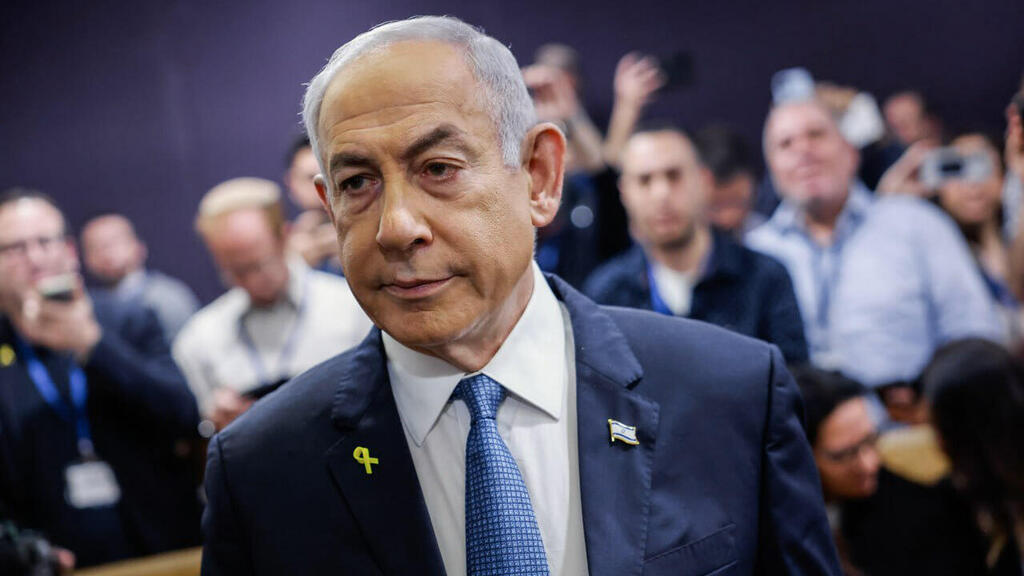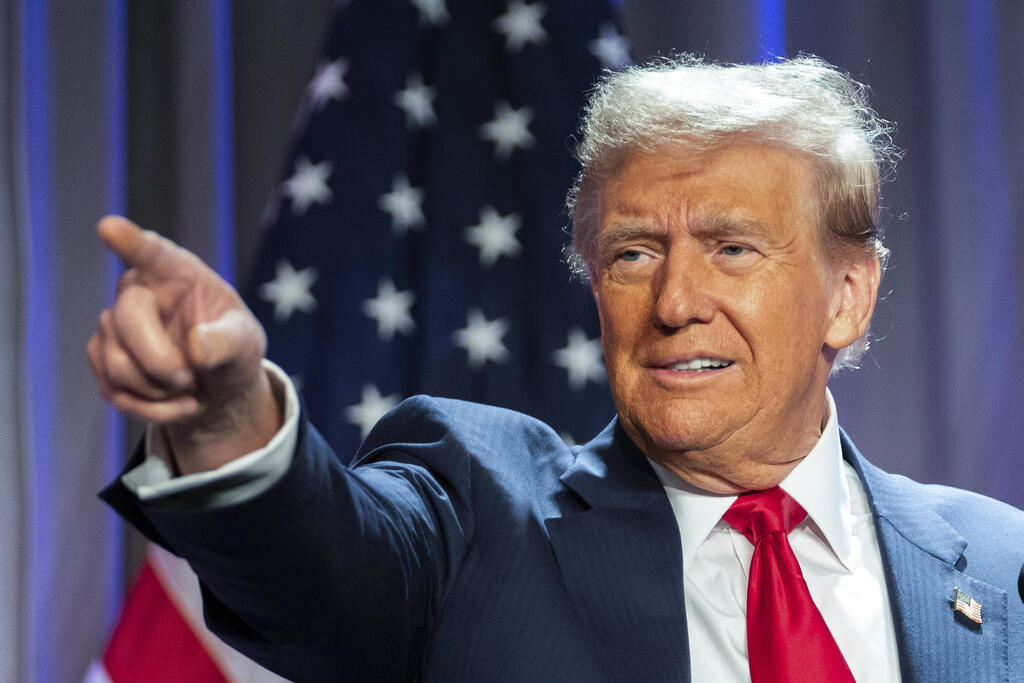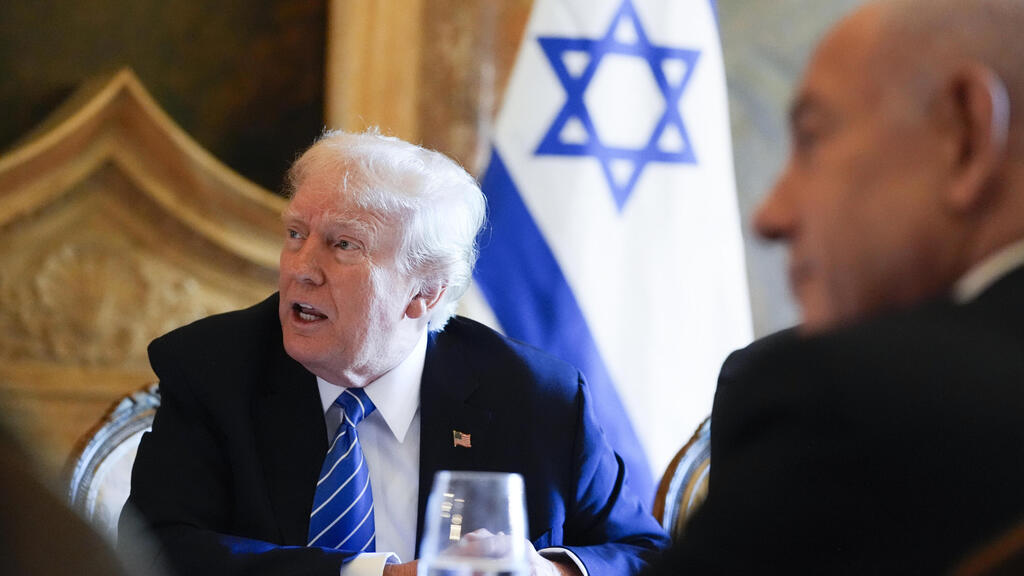Getting your Trinity Audio player ready...
Following Prime Minister Benjamin Netanyahu’s testimony in his alleged corruption trial on Tuesday, set to continue Wednesday afternoon, U.S. defense attorney Professor Alan Dershowitz spoke in an interview with Ynet about the consequences of an incumbent prime minister being held on trial for the first time in the country’s history.
Professor Dershowitz, how realistic is it that a prime minister runs a country like Israel and at the same time testify three times a week for a month?
“It's totally unrealistic, totally illogical and this case proves beyond any doubt that the American approach is far superior to the Israeli approach. Under the American approach, if you're the president, you cannot be put on trial during the presidency.”
US defense lawyer Alan Dershowitz
(Video: Uri Davidovitch)
“Being a president is a full-time job, and no prime minister should ever be put to the choice of ‘Are you going to resolve the issues in Syria? Are you going to fight Hezbollah? Are you going to try to get the hostages back?’ And at the same time have to defend yourself against cigars and champagne.”
“It's the wrong approach. There's no reason why Netanyahu's trial could not be postponed until after he's out of office and an ordinary citizen. This case proves beyond any doubt why the American system works. And if anybody ever tries to change the American system, we will cite the situation in Israel as proof why the American system is far better than the Israeli system.”
Does this imply you feel that Prime Minister Netanyahu is being prosecuted by the legal system?
“I don't think that the case, as I've seen it, is strong enough to bring criminal charges. The criteria aren't clear, there should be rules as there are in many countries saying $1,000 of goods or items, not a penny more, but not a penny less. It shouldn't be left to the discretion of prosecutors and judges to determine how much is too much.”
“There are too many matters of degree in this case and matters of degree should never be the basis for criminal charges. The line should be crystal clear, and it's not.”
Does seeing Prime Minister Netanyahu in court as a defendant cause Israel damage, especially in these times?
“I don't think he's causing them damage. I think the damage is being caused by the system. He should be allowed to be the prime minister 24/7.”
“He should be allowed to make the hard decisions about whether Israel should go into the Golan Heights, whether they should be bombing the chemical factories [in Syria], what attitude should be made toward the return of the hostages. That's a full-time job. It's not his it's the fault of the system that he's being detracted from that.”
“I know he said he can do both, the point is can he do it as well? And my view is that he should be allowed to be the prime minister as long as he is the elected prime minister of Israel without any interference. That doesn't put him above the law, that just changes the law so as to recognize the reality that a prime minister's job is a full-time job.”
To your knowledge, how involved is U.S. President-elect Trump in the hostage negotiations? How significant is it for him?
“We don't know for sure, but President Trump's election by itself has had a big impact on the Middle East. There's no doubt that President Trump's election increased the deterrence against Iran attacking Israel.”
“Remember, Iran promised it would attack immediately and then as soon as Trump was elected, somehow that was forgotten. Now Trump has said that he wants the hostages returned by January 20. Don't know whether that will be, but it's a good thing. And so I'm glad from Israel's point of view that Trump is being very tough on the hostages. I hope it will have an impact. We all hope it will have an impact.”
Can we assume that Trump's inauguration will bring about a hostage deal faster?
“We hope so. Trump believes in peace through strength. That you get peace through strength.”
How do you think the relationship between Trump and Netanyahu will look like in the new administration?
“I can tell you this, just weeks after Trump was elected the first time, I was at Mar a Lago for dinner with a friend, and Trump walked in. He turned to me and he said: ‘You, I have to talk to you.’ And I said, ‘Why?’ He said, ‘You're a friend of Prime Minister Netanyahu.’ I said, ‘Yes.’
“And he said, ‘I want to use you to send messages to your friend the prime minister.’ And I did. And I continue to serve, hopefully, as a bridge between two people I know quite well. Now, obviously, Trump can talk directly to the prime minister who he knows.”
“He can talk to, the prime minister's team who he knows and many people on Trump's team are very close to Israel. Obviously, Mike Huckabee, and many others. It's a close connection that has been nurtured over many years and I think it will serve both countries very well.”
Can you share with us some of those, messages you delivered?
“Of course not.”
Get the Ynetnews app on your smartphone: Google Play: https://bit.ly/4eJ37pE | Apple App Store: https://bit.ly/3ZL7iNv
Were they positive messages at least?
“They're positive messages, but often they have questions. Issues that need indirection rather than direction. Look, I'm happy to help any president of the United States, whether they're liberal or conservative or Republican or Democrat. I'm American. I'm a Zionist.”
“Everybody knows my views on Israel and America and I'm happy to help both countries in any way that's mutually beneficial.”







